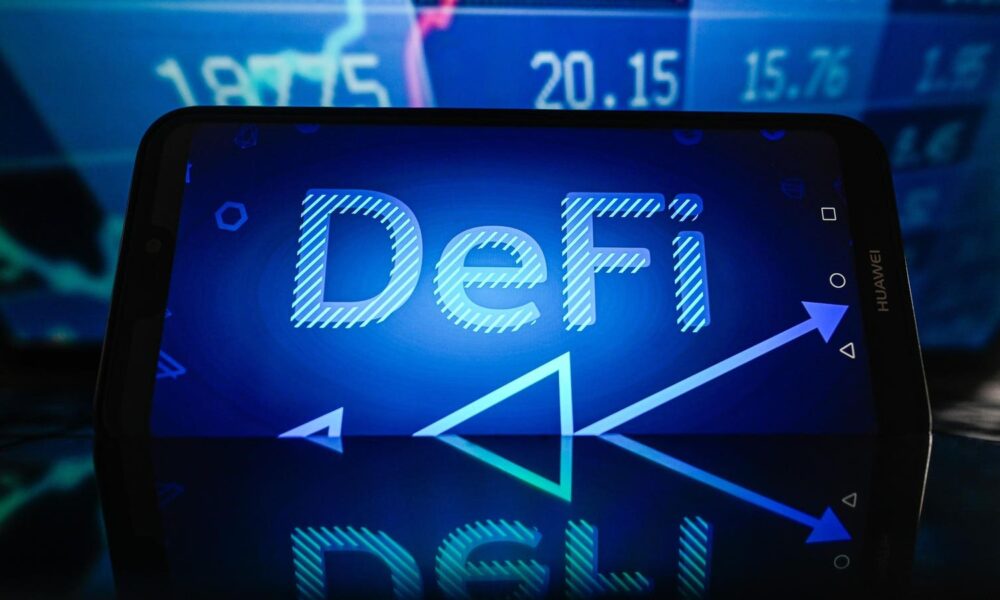Blockchain
4 Ways AI Is Driving Mainstream DeFi Adoption

AI and blockchain may seem like polar opposites. Blockchain technology is deterministic, transparent, and open to all, with every transaction immutably recorded on a public ledger. It also has a steep learning curve, requiring users to understand complex protocols.
On the other hand, AI often works as a “black box,” making decisions based on model parameters and training data sets, providing probabilistic rather than strictly predictable responses. What unites them, however, is that both technologies have become buzzwords in recent years: venture capital funds are chasing them and companies are working hard to implement them.
While there are not many cases where the synergy of both is evident, it holds significant potential for mainstream adoption, especially in decentralized finance. Here’s why:
Improving DeFi user adoption
One of the main obstacles to DeFi adoption is its complexity. AI can play a crucial role in simplifying user interactions with DeFi platforms through AI-powered chatbots and virtual assistants that can guide users through complex DeFi protocols, making them more accessible and intuitive. Maxim Savelyev, CEO of Web3 Empathy Consulting, notes that “Mainstream users can only see the tip of the iceberg of what DeFi can offer, such as the Coinbase Wallet, while the most powerful tools remain locked within the enthusiast community due to their complexity.”
By analyzing a user’s portfolio and behavior, token trends, and whale transactions, AI can provide personalized recommendations, helping users make informed decisions without having to have in-depth technical knowledge. One example is the decentralized hedge fund Numerai, which uses AI and machine learning to gather predictions from data scientists, which are then used to trade on the stock market. This approach shows the potential of AI to guide investment strategies in a decentralized way. Additionally, AI-powered platforms like AlphaPoint leverage AI to analyze on-chain data and predict future prices of DeFi assets, helping users make informed investment decisions.
Fraud Prevention and Audits
With 76 cyber attacks in 2023 resulting in a collective loss of approximately $1.1 billion, according to CatenalysisSecurity is a key concern in DeFi. AI’s ability to detect anomalies and suspicious activity in real time reduces fraud and maintains trust in decentralized platforms. As Lars Nyman of cloud provider CUDO Compute points out, “AI can increase security through anomaly detection and improve the functionality of smart contracts through predictive analytics.” AI can also help create smart contracts, a task previously reserved for technical professionals. By verifying smart contracts and identifying potential vulnerabilities, AI ensures higher security standards and increases trust in blockchain systems.
In this way, the decentralized exchange Uniswap
Uniswap
uses artificial intelligence to identify and block fraudulent transactions, ensuring a safer trading environment for its users. Similarly, the open-source Aave protocol
Ave
uses AI-based risk management tools to optimize loan status and collateral requirements, highlighting the role of AI in improving financial products and services.
Making Blockchain Data Accessible
Blockchain transparency is one of its greatest strengths, but the sheer volume of data can make it difficult to extract meaningful insights. AI can fill this gap by processing and summarizing large data sets, making blockchain data more accessible and smart contract execution more effective. Adnan Masood of solutions provider UST highlights the importance of hybrid approaches where AI processes data off-chain while maintaining integrity on-chain. By transforming raw blockchain data into understandable information, AI can democratize access to information, enabling users to make better decisions.
An example of this is Chainalysis, which uses AI to monitor and analyze blockchain transactions for suspicious activity, thus improving security and making data more accessible for analysis. Another blockchain protocol, Fetch.ai, integrates AI to optimize transaction times and processing with the goal of reducing congestion.
Improving tools for blockchain developers
AI can also improve the quality of life for blockchain developers by providing low-code and copilot-like solutions. These tools can streamline the development process, reduce the need for in-depth coding knowledge, and accelerate project timelines. One example is the multichain protocol Guru Network, which provides a low-code solution that integrates traditional business process automation engines with AI snippets to simplify the creation of Web3 and AI applications. Developers can use pre-built components and templates, while GPT agents provide real-time, contextual lookup from documentation and code repositories.
AI can help generate smart contracts, debug code, and predict potential problems before they arise. This not only speeds up development, but also reduces the margin for error, allowing developers to focus on more strategic and innovative aspects of their projects. AI can also help in the creation of smart contracts, making the development process more accessible to non-technical professionals.
For example, the open source OpenZeppelin framework uses AI to test smart contracts, identifying bugs and vulnerabilities before deployment. This proactive approach ensures that smart contracts are secure and work as intended, reducing the likelihood of errors and exploits. Similarly, Ocean Protocol uses AI to develop deterministic models that align with the deterministic nature of blockchain, improving the overall development process.
AI is transforming the DeFi landscape, bridging the gap between complex financial technologies and everyday users. By enhancing infrastructure, improving user experience, providing robust security measures, and supporting developers, it is making DeFi more accessible and efficient.
As these technologies continue to evolve, we can expect AI to play a more impactful role in the mainstream adoption of DeFi. By leveraging AI’s analytical capabilities and its ability to handle large data sets, DeFi platforms can offer more secure, efficient, and intuitive financial services, ultimately democratizing finance and empowering users around the world.
